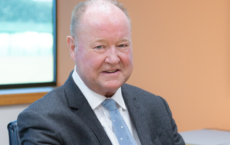In recent years, the headlines have been dominated by claims that as much as 15% of all adults have no savings at all, with that figure rising to 52% among young people, and that people are relying more and more on credit card borrowing and loans to supplement their income or to make large purchases. While clearly there is a lot to be done to encourage people to save more, especially among those on low incomes, there is more to this story than meets the eye.
A recent study from the charity Toynbee Hall and the Building Societies Association has shown conclusively that in fact how much someone earns has absolutely no bearing on a person’s savings habits – that is, that those on lower incomes are just as likely to be active savers as their higher-earning counterparts.
Is there a relationship between earning and saving?
According to the research, how much someone earns or how rich they are is a very poor indicator of how likely they are to save money. Anecdotally this theory is borne out by the number of stories you might hear on the news about wealthy businesspeople and celebrities going bankrupt because they have little or no control over their spending.
This means that the so-called savings habit must be psychological – a learned behaviour as a result of a person’s upbringing or principles they have developed in life. If you look at it this way, it does start to make sense that people on low incomes are better at saving money, especially if they have always come from a less well-off family or one where money has always been tight.
It’s true that many people simply can’t save due to their circumstances – among those interviewed in a separate study, some 4 in 10 Brits said poor earnings was the reason they didn’t save. And according to the Institute for Fiscal Studies around 58% of those in relative poverty now live in working households, meaning that despite employment being at a record high, many of those jobs are not providing a high enough income to even cover daily living costs, let alone allowing people to start putting money away.
What motivates people to save – or not?
The report examines the psychology of why people save, with the results varying quite widely. It distinguishes between different types of saver including those who save for specific life purchase such as a new car or a house deposit, those who are saving for the rainy day and even those who feel rewarded simply through the action of saving itself, and feel spurred on to continue.
The Money Advice Service recommends that people should aim to have a ‘solid financial cushion’ of three months’ essential outgoings. That includes rent or mortgage payments, utility bills, food, debt repayments and any other expenses that must be paid each month. This would help to protect many families from quickly falling behind on their payments and into debt if one or both income-earners were suddenly to stop working for any reason.
How to get people to start saving
As a financial services organisation and a local mutual, we feel a responsibility to help people to start saving wherever we can.
We have long promoted the idea that getting into the saving habit early is the way to get people to start putting away money, no matter how much. We have been involved in financial education across Suffolk and north Essex for more than 10 years delivering our bespoke programme to children aged 7-8 and 14-16, as well as to older college students and prisoners close to release.
Our programme has been designed in line with the national curriculum to instil key financial skills such as budgeting and saving, as well as a general understanding of the value of money. For older students we discuss ways to pay for things, how to work out income tax and national insurance and how to set a monthly budget.
And, of course, we have a wide range of savings accounts available for savers – from the cradle to the grave – with carefully crafted products that suit a variety of needs. For more information on our current products, please click here.
Savings products are available for existing members and new members resident in our heartland area – postcodes IP, NR, CO, CM, CB and PE.
Further reading
Getting into the savings habit: top tips to help you start saving
Sources
https://www.moneyadviceservice.org.uk/en/articles/emergency-savings-how-much-is-enough


















